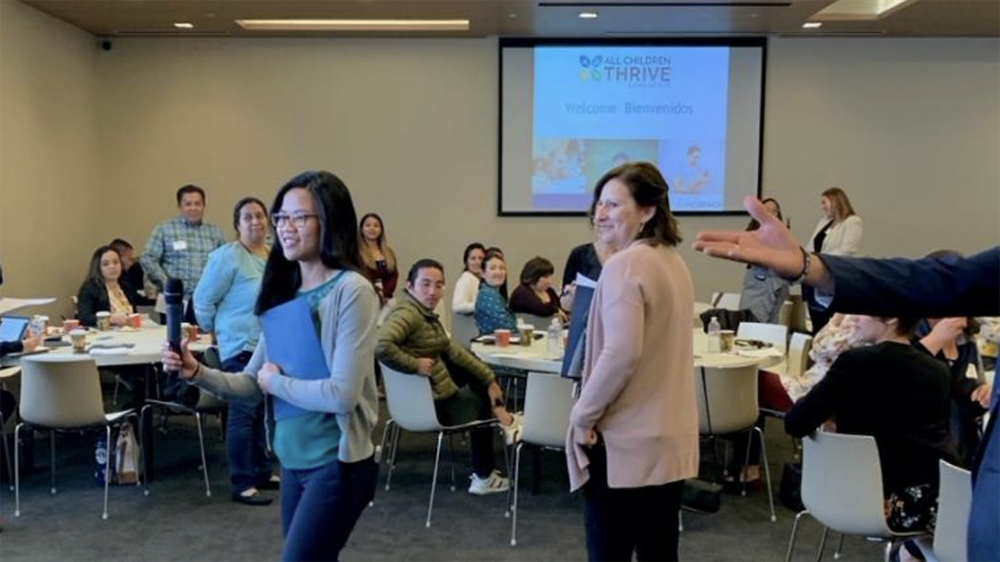Addressing Social Determinants of Health for Children and Families
All Children Thrive (ACT) is a community led movement being launched by cities throughout California. The ACT in Long Beach, California and the Population Health Innovation Lab worked with families to co-create solutions through community engagement design sessions. This is a summary of one of their collaboration projects from 2017.
Long Beach is the seventh-largest city in California yet for many families living there, limited access to preventive health care creates intractable barriers to health outcomes, and these inequities can be overwhelming. For example, a shortage of preventive health resources, community violence, and harmful living conditions plague neighborhoods. Poor health outcomes like low birth weights and shorter life expectancies are the norm.
The All Children Thrive (ACT) Long Beach Accountable Community for Health (ACH) is a unique fusion of two community health frameworks, bringing together healthcare organizations, non-profit organizations, schools, and government in a hybrid of the traditional ACH model. The ACT ACH vision is to ensure “all children and families are loved, healthy, learning, thriving, and succeeding.”
The ACT ACH team set out to engage residents in co-creating solutions to address the gaps in social determinants of health (SDoH) for children 0-8 years old and their families. In collaboration with the Population Health Innovation Lab (PHIL), the ACT ACH developed parent-focused design sessions with the intention to include community members, specifically the parents’ perspective, directly in the ACH ACT leadership.
As a result, seven parents were recruited and trained to be Steering Committee members; a vital committee which guides the direction of the ACT ACH. To overcome any potential barriers to their participation, daycare and a small cash stipend were provided.
To achieve maximum success in this project, PHIL employed a tool known as Asset-Based Community Development (ABCD). The ABCD method is a sustainable community-driven approach to empower residents to drive the process of leadership by identifying and mobilizing existing, yet often unrecognized, assets. Using ABCD, the ACT ACH’s Steering Committee and parents joined representatives from more than 40 local agencies across Long Beach to generate a list of over 300 assets in the community that could support the SDoH of the target population for ACT ACH’s children and their families.


Ultimately, this ACT ACH, parent, and community collaboration established four asset-driven priorities aimed at actualizing the vision: 1) to increase the health of children from birth until age 8; 2) to improve their ability to learn successfully; 3) to ensure children grow up in safe environments; and, 4) to support the social, emotional, and mental health needs of children and their families.
As a result of having well-established community partnerships, the ACT ACH’s COVID-19 pandemic response was adapted to meet the most urgent community needs. They established pop-up drive-through immunization clinics, distributed food boxes and school supplies, and provided linkages to clinical services like mental health resources.



